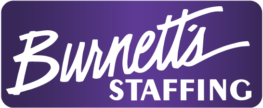Having a disability on the job is hard enough; having to decide whether to disclose a disability is even harder. The following suggestions are especially important for people with invisible disabilities, although it pertains to people with visible ones as well. We will look at some of the reasons why you would want to disclose. Examples will demonstrate how to be discrete when requesting a job adjustment. We will discuss examples of reasonable accommodations, as well as look at your rights if you feel you have been discriminated.
Why would you share your disability at work?
In some instances, disclosing a disability can be advantageous, for instance, if you work for an organization assisting people with disabilities. In the most probable scenario, however, it is necessary to disclose in order to get an accommodation so you can perform the functions of the job and be successful.
Before disclosing, get a game plan. You want to give this some thought, rather than jumping in headfirst. It is ideal to request assistance sooner, rather than later to prevent future disciplinary action. It is also useful to have an idea of what types of accommodations are available to you, so you can help yourself and your employer decide the best option. As much as we would like them to be, employers are not mind readers. Your employer needs to know why you need assistance on the job. If you do not inform your employer about your needs, she definitely cannot help you.
So, you have decided to disclose…
How does one ask for an accommodation? How much do you need to reveal about your disability? Well, you want to say as little as possible about your condition, while still providing an adequate reason for the modification. Be confident and direct: show you can do your job more effectively with the addition of an accommodation. For instance, “If I were able to have a tape recorder at our meetings, I could use it to remind me of what was requested of me.”
To avoid possible complications, write a letter of your request. Include in the letter your need for an accommodation in accordance to the Americans with Disabilities Act (ADA). (You do not need to identify your disability; however, be aware that the law permits your employer to request medical documentation of your disability.) The ADA requires employers to provide a reasonable accommodation, unless doing so will create an “undue hardship.” Also in that letter, it would be helpful to suggest accommodation ideas to your employer; after all, you know your disabilities better than anyone does.
Contrary to what some people believe, a reasonable accommodation does not permit employees to avoid doing their job; rather, it allows the opportunity for the person with the disability to be able to participate in employment activities, just as any other employee would. Telling an employer you need to come in late for work every day is not a reasonable request and your employer will most likely say no; in addition, it could trigger your employer’s suspicions about why you need the time off. On the other hand, a reasonable request justifies your need for the accommodation, such as, coming into work later because a medication for a condition you have prevents you from being alert at 9am. Realize, you did not disclose your disability; instead, you stated, “Condition that requires medication.” It is effective, yet tells the employer you have a disability (a condition requiring medication), and that you need an accommodation (the schedule adjustment).
There are limitless accommodation ideas available for various disabilities. For example, a woman who tires easily might request frequent breaks throughout her shift. A man with an attention deficit disorder may suggest purchasing a pair of noise-canceling headphones so he can minimize distractions. A man undergoing chemotherapy treatment may need to take a leave of absence. These are examples of reasonable accommodations; they allow the employee to perform the necessary job functions, but they do not cause undue hardship to the employer. Many accommodations are low or no cost. If you do not know what different accommodations are available to you, check out The Job Accommodation Network, or JAN. It may also be beneficial to pass this resource along to your supervisor since it contains information specifically for employers.
Discrimination is a reasonable concern for people who have disclosed their disabilities; however, the ADA helps to prevent this. The ADA was designed to provide people with disabilities the same opportunities as people without disabilities. Unfortunately, discrimination does still exist in the workplace. If you believe you have been discriminated, you have the option of contacting the EEOC (Equal Employment Opportunity Commission). The EEOC will investigate the claim and create recommendations based on the facts.
Disclosing a disability on the job is essential if you need an accommodation. Remember that you are your own disability expert. Do some research about accommodations and save your employer some time — he will appreciate it. You cannot get what you don’t ask for, so if you need an accommodation, even if you don’t know what it would be, make sure to speak up for yourself, your job success depends on it.
Have you had this conversation at work? Let us know how you’ve about it and what your experience was like.
Editor’s note: Today we have a guest post from Sarah Laugtug, who is a writer, career consultant, and the executive editor of ilivewithadisability.com. Today’s post is part of an ongoing series about job searching and working with a disability. You can read the first installment, “Job seeking when you have a disability,” here.

